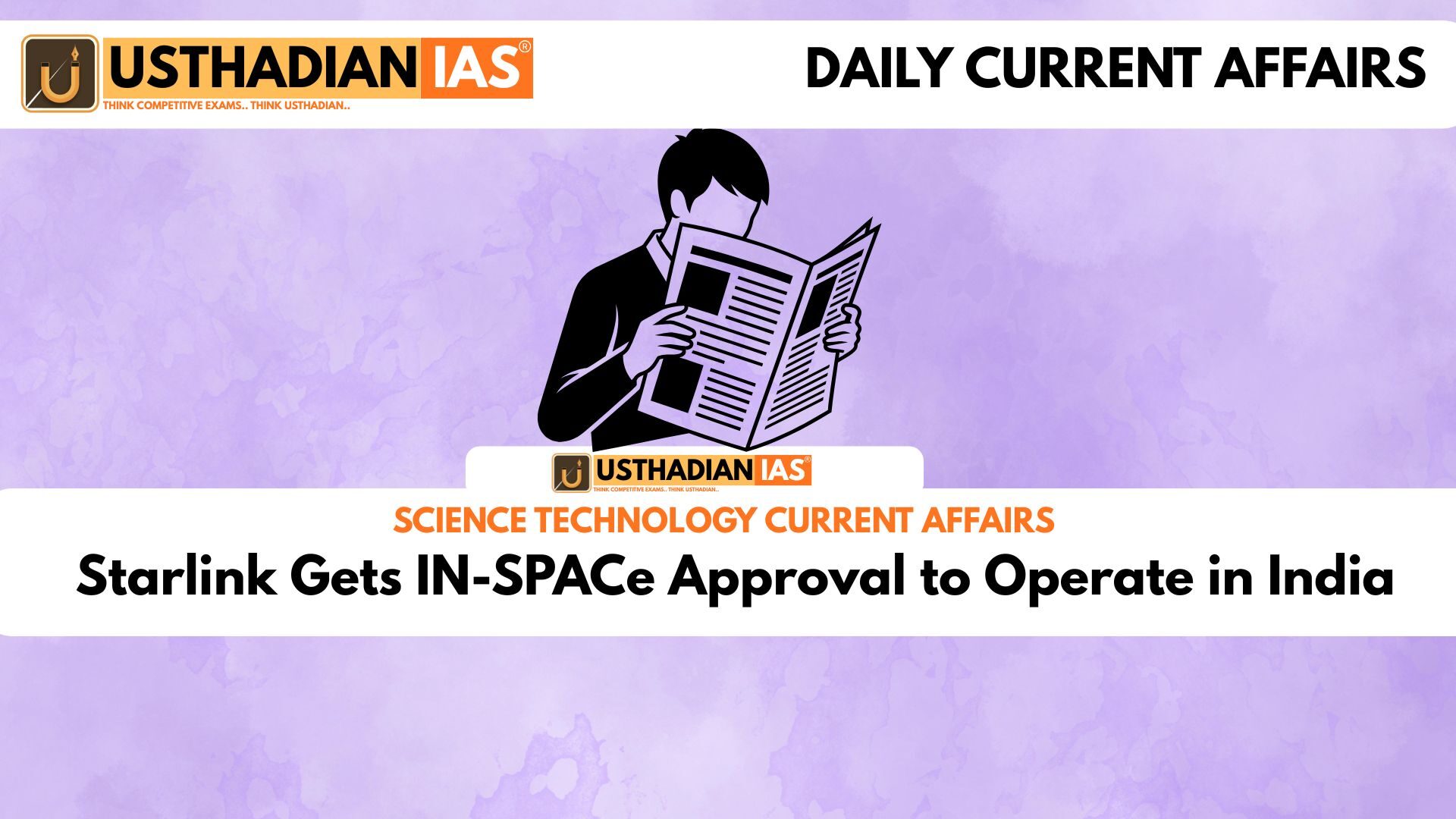Starlink gets green signal from IN-SPACe
Starlink Gets IN-SPACe Approval to Operate in India: India’s Indian National Space Promotion and Authorization Centre (IN-SPACe) has granted a 5-year authorisation to Starlink, a division of SpaceX, to provide satellite internet services in the country. This move marks a significant milestone in India’s push towards liberalising the space and telecom sectors.
Starlink is a low-earth orbit satellite constellation designed to deliver high-speed internet across the globe. Its operations in India could dramatically improve connectivity, especially in rural and remote regions where terrestrial internet infrastructure is sparse.
About satellite communication services
Satellite communication provides wireless internet through orbiting satellites. It functions independent of ground-based infrastructure, making it vital for inaccessible areas.
Key users of this technology include broadcasters, Internet Service Providers (ISPs), government agencies, military bodies, and large corporations. The services fall into three broad categories: telecom services, broadcasting, and data communication.
The strategic importance of satellite communication includes emergency response, disaster management, navigation, and universal digital access.
Static GK fact: India launched its first communication satellite, INSAT-1A, in 1982.
Boosting private space ventures in India
The clearance to Starlink aligns with India’s broader space sector reforms initiated in 2020. These reforms created multiple bodies to delineate roles in the ecosystem:
- ISRO: Core R&D and strategic missions
- IN-SPACe: Regulator and promoter for private space entities
- NSIL (NewSpace India Ltd): Commercial arm for ISRO launches
- Antrix Corporation: Legacy commercial entity of ISRO
The Indian Space Policy 2023 was introduced to further institutionalise private participation across the entire space value chain.
Static GK fact: India became the first Asian nation to reach Mars orbit in its maiden attempt with Mangalyaan in 2014.
Growth of Indian private space players
Private startups like Agnikul Cosmos and Skyroot Aerospace are expanding India’s commercial space footprint.
- Agnikul Cosmos received ISRO’s help in accessing critical technologies.
- Skyroot Aerospace achieved a historic feat by launching Vikram-S, India’s first privately built sub-orbital rocket, in November 2022, facilitated by IN-SPACe.
These developments underline the growing ecosystem of public-private collaboration in Indian space missions.
The road ahead
IN-SPACe is also working towards managing a dedicated Venture Capital Fund to support space startups over the next five years. This will help India strengthen its space economy and compete globally in satellite and launch services.
The entry of Starlink is expected to trigger healthy competition, lower prices, and drive innovation in India’s satellite broadband sector.
Static Usthadian Current Affairs Table
| Topic | Detail |
| IN-SPACe | Autonomous body under Department of Space promoting private participation |
| Starlink | SpaceX’s low-earth orbit satellite internet system |
| Authorisation Period | 5 years |
| Indian Space Policy 2023 | Ensures level playing field for private players |
| Agnikul Cosmos | Startup supported by ISRO for launch vehicle tech |
| Vikram-S | First private rocket launched by Skyroot Aerospace in 2022 |
| NSIL | Commercial arm of ISRO for launch services |
| Satellite Communication Types | Telecom, Broadcasting, Data services |
| Key Users | Government, ISPs, Military, Broadcasters |
| Strategic Uses | Remote connectivity, disaster relief, navigation aid |








